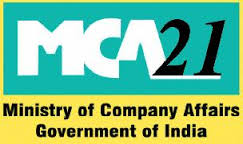
The MCA has amended the Companies (Incorporation) Rules, 2014. In the revised Rule 8 for reservation of name of a company, the Ministry has elaborated the provision by inserting various illustrations. The Rule has been divided in to 2 parts – Rule 8A and Rule 8B. Rule 8A deals with the undesirable names and Rule 8B limits use of words such as Board, commission, National, Republic etc. only after obtaining previous approval of Government.
MCA has created a dedicated unit Central Registration Centre (CRC) to expedite the incorporation related activities including Name approval. Yet the stakeholders were facing difficulty in getting the name approved due to lack clarity in the Rules for selection of desired name. This amendment may bring relief to the stakeholders while choosing the name of a company. Revised Rules with detailed illustration will serve as ready-made guidance for both practicing professionals and CRC thereby further easing the incorporation process.
The MCA has amended the Companies (Incorporation) Rules, 2014. In the revised Rule 8 for reservation of name of a company, the Ministry has elaborated the provision by inserting various illustrations. The Rule has been divided in to 2 parts – Rule 8A and Rule 8B.
Rule 8A deals with the undesirable names and Rule 8B limits use of words such as Board, commission, National, Republic etc. only after obtaining previous approval of Central Government.
While considering the application related to name approval the following illustrations must be considered otherwise the names shall be considered as undesirable and will not be approved. Some of the illustrations have been discussed hereunder:
1. Name should not be identical to singular or plural form of existing company:
User of plural or singular form of the words will be considered as undesirable and such name wouldn’t be approved by authority on receipt of application for reservation of name of company. This can be better understood with the help of illustration as provided by MCA:
– For e.g. Green Technology Limited shall be considered same as Greens Technology Limited and Greens Technologies Limited.
2. Change in Tense would be considered as Similar Name:
The department will reject the application for reservation of name of the company if someone use different tense in name of the company such as:
– Ascend Solution ltd. is same as Ascended Solutions Ltd and Ascending Solutions Ltd.
3. Different use of phonetic spellings is treated as identical name:
Chemtech Ltd is same as Chemtec Ltd, Chemtek Ltd, Cemtek ltd, Kemtech Ltd and Kemteck Ltd.
4. Change in order of words of name and use of article before proposed name:
The application for reservation of name will not be considered if an applicant just changes the order of words or use of article before any name of the existing company for e.g.:
1. Ravi Builders and Contractors Ltd is same as Ravi Contractors and Builders Ltd
2. Congenial Tours Ltd is same as A Congenial Tours Ltd. and The Congenial Tours Ltd.
5. Variation in spelling of two name:
Name including slightly variation in spelling of existing company name would be considered as resembling name and department will reject the application for reserving a name of the company. For example,
– Color Technologies Ltd is similar as Colour Technologies Ltd.
6. Addition, deletion or modification of exiting name:
Addition, deletion or modification in any existing name of the company is not allowed and the concerned department will spare no time to reject the proposed name of the company. To instance,
1. Salvage Technologies Ltd is an existing name and it is same as Salvage Technologies Delhi Ltd. and Salvage Delhi Technologies Ltd.
2. Thunder Services Ltd is same as Thunder11 Services Ltd. and OneThunder Services Ltd.
7. Change in meaning either in Hindi or English:
Complete translation or transliteration or nay part of an existing name either in Hindi or English. For Example:
– National Electricity Corporation Ltd is same as Rashtriya Vidyut Nigam Ltd
8. Use of host name such as ‘www’ or a domain extension such as ‘net’, ‘org’, ‘dot’ or ‘com’ in one or both name: For Example
(i) Ultra Solutions Ltd. is same as Ultrasolutions.com Ltd.
(ii) Supreme Ultra Solutions Ltd. is not the same as Ultrasolutions.com Ltd.
9. Word or expression which can be used only after obtaining previous approval of Central Government are given below:
(a) Board;
(b) Commission;
(c) Authority;
(d) Undertaking;
(e) National;
(f) Union;
(g) Central;
(h) Federal;
(i) Republic;
(j) President;
(k) Rashtrapati;
(l) Small Scale Industries;
(m) Khadi and Village Industries Corporation;
(n) Financial Corporation and the like;
(o) Municipal;
(p) Panchayat;
(q) Development Authority;
(r) Prime Minister or Chief Minister;
(s) Minister;
(t) Nation;
(u) Forest corporation;
(v) Development Scheme;
(w) Statute or Statutory;
(x) Court or Judiciary;
(y) Governor;
(z) the use of word Scheme with the name of Government (s), State, India, Bharat or any Government authority or in any manner resembling with the schemes launched by Central, State or local Governments and authorities; and
(za) Bureau





